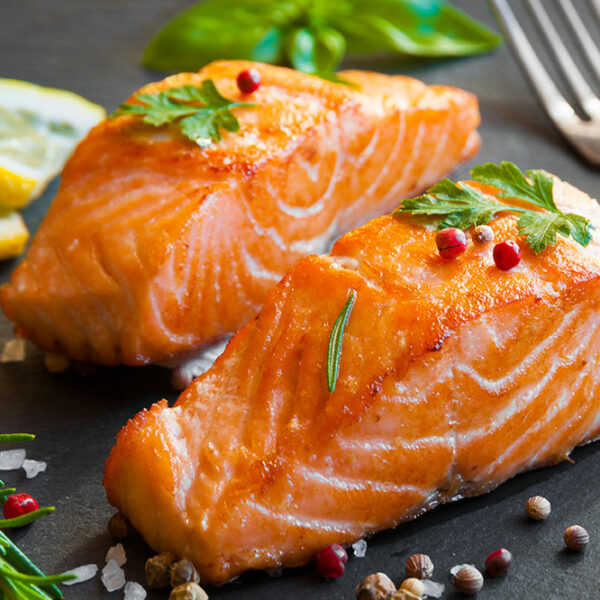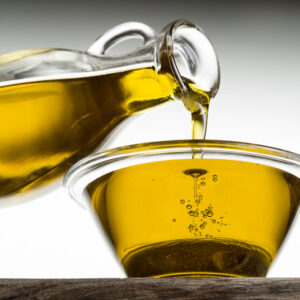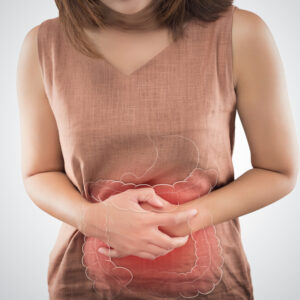5 foods to manage migraines
A migraine is a condition that causes recurring and severe headaches accompanied by other symptoms like nausea and sensitivity to light. A migraine attack is far more severe than a regular headache and can last for hours to several days. Common triggers include hormonal changes in women, medications, stress, food additives, and certain foods. There are several to alleviate the symptoms of a migraine attack: these include certain foods to manage the condition better.

Here are some foods that prevent and control migraine attacks:
Water
Dehydration causes headaches and is also a trigger for migraines. This is why it is essential to drink plenty of water to prevent dehydration. About one-third of those with the condition say dehydration is a trigger. In fact, for many, the slightest hint of dehydration can cause a throbbing headache. In addition to that, dehydration can lead to confusion and dizziness and become a medical emergency. It is vital to keep track of one’s water intake and restrict the consumption of diuretics. Sometimes, a migraine attack can be controlled by simply drinking a glass of water.
Fresh food
Processed foods can be unhealthy and cause migraine attacks. Meals consisting of freshly prepared foods, like fruits, vegetables, and lean meats, are recommended for those with migraines. They are less likely to contain preservatives like monosodium glutamate, a common migraine trigger. Chemicals, including nitrates and nitrites, found in cured and processed meats are a cause for concern for those who experience migraines. Once these chemicals get into the body, they cause the blood vessels to swell, triggering a headache.
Foods rich in omega-3 fatty acids
Talking of healthy ways to control migraines, favor foods that are known to be anti-inflammatory. Research suggests that foods high in omega-6 fatty acids increase inflammation while those rich in omega-3 fatty acids help fight inflammation. It is, therefore, imperative to eat more omega-3 fatty acid-rich foods and limit the consumption of omega-6 fatty acids. That said, it is vital to not completely deprive oneself of omega-3 fatty acids, as these play a crucial role in brain function. Walnuts, flaxseeds, seafood, olive oil, and chia seeds are some essential foods that contain omega-3 fatty acids.
Ginger
Ginger contains gingerols and shogaols, known for their anti-inflammatory and pain-relieving effects. Research has also found that ginger increases serotonin levels, which constricts blood vessels and relieves inflammation. This is the same mechanism by which triptans are used to treat migraines. Ginger is a well-known home remedy to treat nausea and vomiting that are often side effects of migraines. Adding ginger to one’s meals can help alleviate these symptoms. The ingredient is very versatile and can be used in both sweet and savory recipes.
Chilies
Hot peppers contain the compound capsaicin, which decreases the messenger that the nervous system uses to transmit pain signals. In this manner, it helps control pain and headache. It is also used in topical sprays and ointments for its pain-relieving properties.
Apart from making changes to the food regime, Nurtec® (Rimegepant) may also be effective for migraine. The medication helps both prevent and stop migraine attacks depending on when one takes the tablet. The quick dissolve oral tablet may be effective within 60 minutes to stop and manage symptoms as soon as the migraine strikes. Further, taking Nurtec® ODT every other day can help prevent migraine attacks and keep its triggers at bay.
Apart from Nurtec, the medicines listed below are also helpful in dealing with migraines.
UBRELVY
UBRELVY (ubrogepant) tablets are prescription tablets for the treatment of migraine attacks in adults. Studies indicate that UBRELVY is useful for quick pain relief within two hours. It is known to directly block CGRP — a protein that is known to be a contributing factor in migraine attacks.
Excedrin Migraine
Excedrin Migraine is an over-the-counter medication recommended by doctors for relieving symptoms of migraine. Patients with moderate to severe migraines can take two tablets. This should help deal with any active symptoms.





